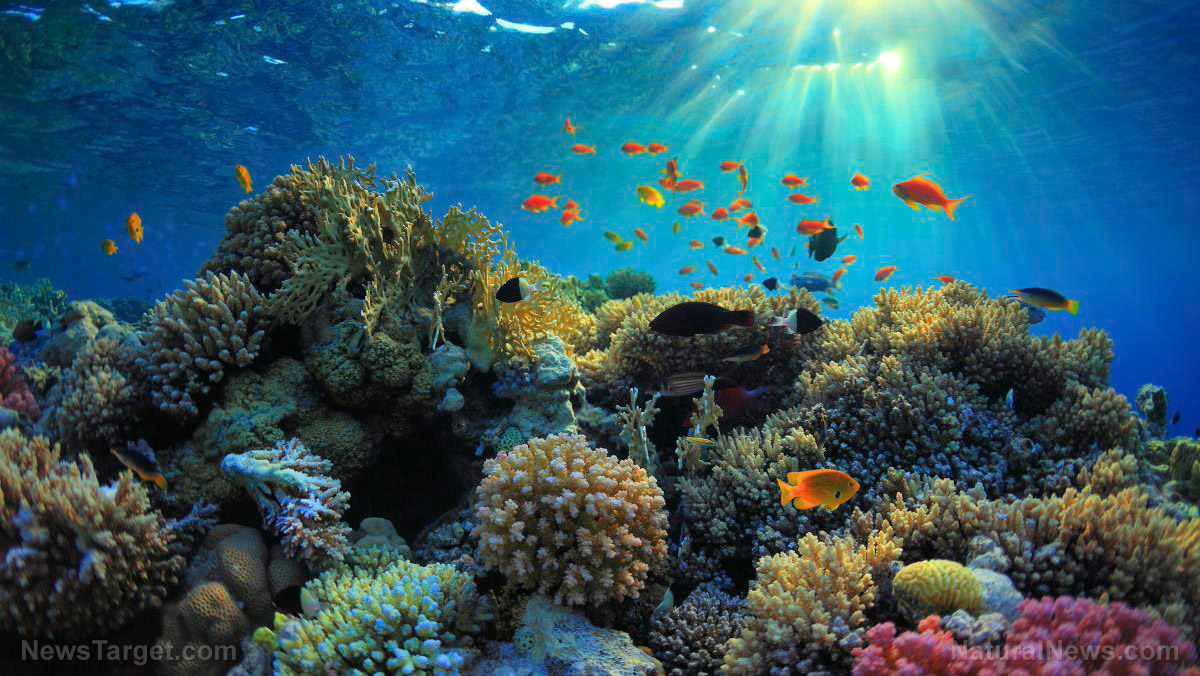
There has been a massive rise in the annual growth of coral over Australia's Great Barrier Reef (GBR). According to the 2021-2022 annual summary from the Australian Institute of Marine Science (AIMS), the level of coral cover in the northern and central areas of the reef is now at its highest levels over the past 36 years of monitoring.
However, this excellent news is being downplayed by mainstream media. This comes as no surprise as the demise of the world's coral reefs has been the go-to poster scare for climate change activists.
In October 2020, the BBC told stories of the reef losing half its coral, while the Guardian set the coral doomsday ball rolling in 1999 by reporting that the "imminent destruction of the world's coral reefs is not a scare story," adding that "global heating could jeopardize recovery."
Still, many believe that the notion of global warming causing corals to die is a fib that "environmentalists" made. Tropical coral, which is closely related to its cnidarian cousin, the jellyfish, thrives in waters between 24 to 32 C. They are highly adaptable, but seem to dislike sudden changes in temperature, which are often caused by natural weather phenomena such as El Niño events.
The latest results from AIMS show that coral quickly recovers when localized conditions return, and often grows faster in warmer waters nearer the equator than in the GBR. This lie suggests that minor long-term sea temperature changes will wipe out the coral, but scientific evidence suggests otherwise.
Evidence shows coral reefs are not actually dying
Data from AIMS showed that growth can be seen in the northern reef, and recovery is said to have continued following a "period of cumulative disturbances" from 2014 to 2020.
Of the 24 reefs surveyed in the last two years, only three were found to have decreased hard coral cover, and the biggest disturbance rose in 2016, during the El Niño that quickly raised surrounding ocean temperatures by up to three degrees.
The sudden warming spooked coral and they expel symbiotic algae in the process, which is now known as bleaching. However, this reverses when sea temperatures stabilize.
Corals had been around in one form or another for 500 million years, and it is likely that this natural process extends back as far as humans know life on the planet.
In the central reef, the declines seen in 2012 and 2016 were due to natural events, specifically Cyclone Yasi in 2012 and the El Niño in 2016. Things did not fare any better when crown-of-thorns starfish attacks broke out.
Since then, however, growth had been spectacular, with 2021 showing hard coral cover increasing to 33 percent, which is the highest in the region. Over the last two years, hard coral cover also declined on only four individual reefs, while most others that were surveyed showed marked improvement. (Related: Reef fish found to be surprisingly resilient to ocean acidification caused by carbon dioxide.)
The southern part of the GBR has generally displayed the highest coral cover. In recent years, there had been good growth despite the 2016 El Niño problem and major starfish attacks. AIMS noted that many southern reefs have high coral cover, yet starfish continued to decimate some areas.
Overall, however, the GBR seems to be in excellent shape.
Because reefs consist of more than just hard coral and actually contain diverse species such as sponges and algae, 30 to 50 percent cover is considered "high value," based on historical surveys.
Still, coral remains too valuable a weapon in the climate change agenda to be discarded easily. Despite stunning reverses in recent natural coral declines, the AIMS is sticking to the trendy apocalyptic story that said the consequences of climate change could include more frequent and more intense coral reef bleaching events.
Visit OceanHealthNews.com for more news related to the world's oceans.
Watch the video below for more information about coral bleaching and other coral diseases.
This video is from the Finding Genius Podcast channel on Brighteon.com.
More related stories:
Protected coral reef horrifically damaged by yacht of Microsoft cofounder Paul Allen.
Huge story about coral reef destruction by 'environmentalist' totally censored by mainstream media.
Rising global sea levels may actually be beneficial for coral reef islands in the long-run: Study.
Hope for reef fish: Ocean currents bring food to fish populations in damaged coral reefs.
Sources include:
Please contact us for more information.





















